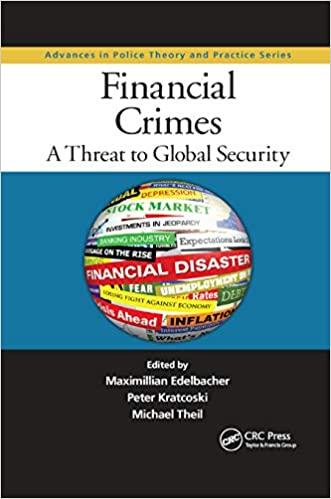Question
1) You have just purchased a home and taken out a $ 530,000 mortgage. The mortgage has a 30-year term with monthly payments and an
1) You have just purchased a home and taken out a $ 530,000 mortgage. The mortgage has a 30-year term with monthly payments and an APR of 5.20%.
a. How much will you pay in interest, and how much will you pay in principal, during the first year?
b. How much will you pay in interest, and how much will you pay in principal, during the 20th year (i.e., between 19 and 20 years from now)?
2) You need a new car and the dealer has offered you a price of $20,000, with the following payment options: (a) pay cash and receive a $2,000 rebate, or (b) pay a $5,000 down payment and finance the rest with a 0% APR loan over 30 months. But having just quit your job and started an MBA program, you are in debt and you expect to be in debt for at least the next 2 years. You plan to use credit cards to pay your expenses; luckily you have one with a low (fixed) rate of 13.59% APR. Which payment option is best for you?
3) The mortgage on your house is five years old. It required monthly payments of $1,450, had an original term of 30 years, and had an interest rate of 10% (APR). In the intervening five years, interest rates have fallen and so you have decided to refinance that is, you will roll over the outstanding balance into a new mortgage. The new mortgage has a 30-year term, requires monthly payments, and has an interest rate of 6.625% (APR).
a. What monthly repayments will be required with the new loan?
b. If you still want to pay off the mortgage in 25 years, what monthly payment should you make after you refinance?
c. Suppose you are willing to continue making monthly payments of $1,450. How long will it take you to pay off the mortgage after refinancing?
d. Suppose you are willing to continue making monthly payments of $1,450 and want to pay off the mortgage in 25 years. How much additional cash can you borrow today as part of the refinancing?
4) Your uncle Fred just purchased a new boat. He brags to you about the low 6.9% interest rate (APR, monthly compounding) he obtained from the dealer. The rate is even lower than the rate he could have obtained on his home equity loan 7.9% APR, monthly compounding). But if his tax rate is 25% and the interest on the home equity loan is tax deductible, which loan is truly cheaper?
Step by Step Solution
There are 3 Steps involved in it
Step: 1

Get Instant Access to Expert-Tailored Solutions
See step-by-step solutions with expert insights and AI powered tools for academic success
Step: 2

Step: 3

Ace Your Homework with AI
Get the answers you need in no time with our AI-driven, step-by-step assistance
Get Started


